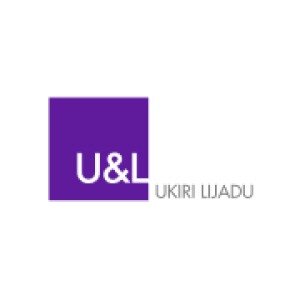Best Discrimination Lawyers in Lagos
Share your needs with us, get contacted by law firms.
Free. Takes 2 min.
List of the best lawyers in Lagos, Nigeria
About Discrimination Law in Lagos, Nigeria
Discrimination law in Lagos, Nigeria, is designed to protect individuals from unfair treatment based on various attributes, including race, ethnicity, religion, gender, age, and disability. The Nigerian Constitution and various national laws, such as the Equal Opportunities Commission Act and the Nigerian Labour Act, set the framework for tackling discrimination. These laws aim to promote inclusivity and equal opportunity in various settings, including employment, education, and public services. In Lagos, a metropolitan and culturally diverse city, these laws play a critical role in fostering harmony and equal treatment for all residents.
Why You May Need a Lawyer
Individuals may require legal assistance in discrimination cases to navigate the complexities of the legal system and enforce their rights. Common situations where a lawyer’s expertise might be needed include:
- Facing unfair treatment at work due to personal attributes such as gender or religion.
- Experiencing racial profiling or discrimination in access to public services.
- Being denied equal opportunities in educational institutions or housing.
- Harassment or victimization based on a disability.
- Needing to file a complaint with government agencies but unclear on the procedure.
Local Laws Overview
In Lagos, several key legal frameworks address discrimination issues:
- The Nigerian Constitution: Offers a broad protection against discrimination under Sections 17 and 42.
- The Nigerian Labour Act: Prohibits discrimination in employment based on race, gender, and other characteristics.
- The Equal Opportunities Commission Act: Established to monitor and enforce equal opportunity standards.
- The Lagos State Rights of People with Disabilities Law: Specifically targets the protection of rights for people with disabilities, ensuring their full inclusion in society.
These laws provide a basis for individuals to seek redressal in cases where they face discrimination in Lagos and offer a path for legal interventions to uphold equality and justice.
Frequently Asked Questions
What constitutes discrimination under Nigerian law?
Discrimination occurs when an individual or group is treated less favorably based on characteristics such as race, gender, ethnicity, religion, disability, or age.
Can discrimination occur in the workplace?
Yes, discrimination in the workplace is a common concern and is covered under the Nigerian Labour Act, which mandates equitable treatment in hiring, promotion, and other employment aspects.
What should I do if I face discrimination?
It's advisable to document incidences of discrimination, gather evidence, and consider consulting with a lawyer who specializes in discrimination law to explore your legal options.
Where can I file a complaint about discrimination?
You can file a complaint with the Nigerian Equal Opportunities Commission or report to the Human Rights Commission in Lagos.
Are there time limits for lodging discrimination claims?
Yes, there are typically statutory time limits for filing claims, so it is advisable to seek legal counsel promptly to avoid forfeiting your rights.
What remedies are available for victims of discrimination?
Remedies can include compensation, reinstatement (where applicable), policy changes within offending organizations, or public apologies.
Can informal sectors be held accountable for discrimination?
Yes, discrimination laws apply to both formal and informal sectors, and victims can seek redressal under applicable laws.
How does the law protect people with disabilities?
The Lagos State Rights of People with Disabilities Law provides comprehensive protections, ensuring equal access and opportunities in various facets of life.
Is sexual harassment considered a form of discrimination?
Yes, sexual harassment is recognized as a form of gender-based discrimination and is actionable under relevant employment and criminal laws.
Do I need a lawyer to handle a discrimination claim?
While not mandatory, having a lawyer can greatly assist in understanding your rights, preparing a strong case, and navigating complex legal procedures efficiently.
Additional Resources
For additional support and information, consider reaching out to these organizations and governmental bodies:
- Nigerian Equal Opportunities Commission
- Lagos State Judiciary
- National Human Rights Commission
- Nigeria Labour Congress (NLC)
- Centre for Law Enforcement Education (CLEEN)
These organizations can provide guidance, support services, and assist you in accessing legal aid if necessary.
Next Steps
If you need legal assistance related to discrimination, consider the following steps:
- Document all relevant incidents and collect supporting evidence.
- Research and identify a qualified lawyer or law firm specializing in discrimination law in Lagos.
- Schedule a consultation to discuss the specifics of your case and evaluate your legal options.
- File necessary complaints with appropriate legal authorities or commissions if advised.
- Remain informed and engaged with any legal proceedings or negotiations.
Seeking timely legal advice can be crucial in protecting your rights and achieving meaningful resolutions in discrimination disputes.
Lawzana helps you find the best lawyers and law firms in Lagos through a curated and pre-screened list of qualified legal professionals. Our platform offers rankings and detailed profiles of attorneys and law firms, allowing you to compare based on practice areas, including Discrimination, experience, and client feedback.
Each profile includes a description of the firm's areas of practice, client reviews, team members and partners, year of establishment, spoken languages, office locations, contact information, social media presence, and any published articles or resources. Most firms on our platform speak English and are experienced in both local and international legal matters.
Get a quote from top-rated law firms in Lagos, Nigeria — quickly, securely, and without unnecessary hassle.
Disclaimer:
The information provided on this page is for general informational purposes only and does not constitute legal advice. While we strive to ensure the accuracy and relevance of the content, legal information may change over time, and interpretations of the law can vary. You should always consult with a qualified legal professional for advice specific to your situation.
We disclaim all liability for actions taken or not taken based on the content of this page. If you believe any information is incorrect or outdated, please contact us, and we will review and update it where appropriate.













